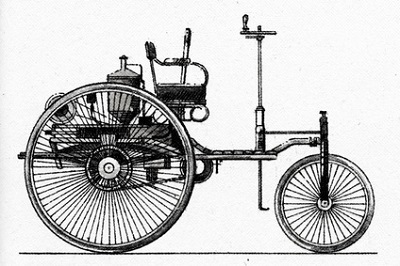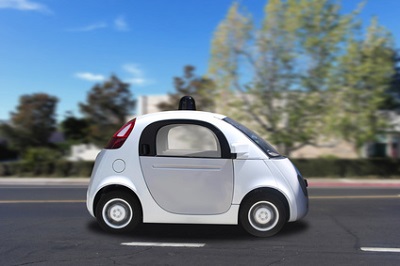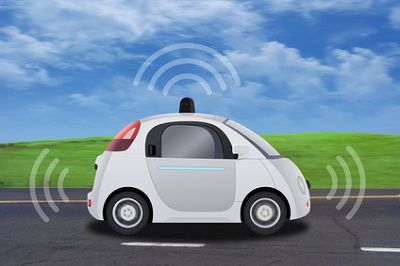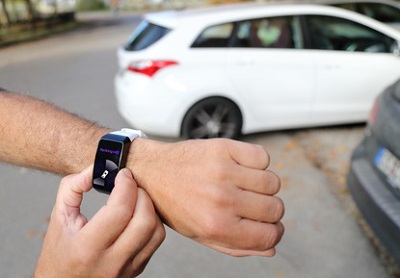Depending on how you define them, cars have been around since 1886 when a certain Herr Benz created his snappily named Benz Patent-Motorwagen. Over the next 100 odd years, car technology changed slowly. Cars became bigger and faster, steering became more advanced, tyres became inflatable, and they became more common.
 Photo by: Juulijs/Fotolia
Photo by: Juulijs/Fotolia
In the last 25 years however, car technology has developed at a breath-taking speed. Go back to 1990 (that’s a G or H reg. or the year Senna won the second of his titles) and the Fiesta was, like today, the top selling car around. It requires either huge imagination or pre-existing knowledge to associate the 1990 Fiesta with a 2015 model.
In this time we’ve seen so many innovations. These include anti-lock braking (ABS) as standard, hatchbacks now being more powerful than 80’s supercars and park assist being introduced. Cameras are also common additions to new cars. Electric cars are now a reliable alternative – check out the BMW i3!
New car technology
Car technology is accelerating rapidly. Manufacturers are working on a host of new features that are both near and lightyears away. So where do we start? Here’s a look at some of the down to earth and farfetched concepts and how future technology may affect car hire and travel technology.
Electronic sun visor
I’ll be honest, with my current commute this doesn’t affect me too badly. I know sun visors can be useful if you travel east in the morning and west in the evening. Except if you’re on holiday in Spain.
Current industry bad boys VW are working on an anti-glare solution built into the windscreen. It uses sensors to detect both the brightness of the sun and the position of the driver’s eyes. Witchcraft then projects a dark spot onto the glass which moves when the car changes direction!
Ultimately, this could do away with sun visors. I’d still be worried about a malfunction causing the whole windscreen to turn black!
Self-driving vehicles
Google are making progress here. Although one of their cars was recently pulled over for driving too slowly. The main criticism levelled at self-driving cars is they’re too cautious. Better than it acting like Christine though!
 Photo by: martialred/Fotolia
Photo by: martialred/Fotolia
In theory, self-driving cars could be a reality by 2020. We won’t see them filter into the rental sector for a while. The cost alone is over $100,000 per car. A self-driving vehicle would definitely benefit tourist abroad. We’d be able to spend more time looking at the scenery and wouldn’t have to worry about breaking foreign motor laws or driving in the wrong lane.
Medical cars
A number of manufacturers including Nissan and Audi are currently developing systems that can recognise if the driver is tired, drunk, or unwell. Sensors can monitor a driver’s heart rate, eye movements, and brain activity to detect everything from sleepiness to a heart attack. We could even see the introduction of digital grip pads (electrocardiograph sensors) on the steering wheel which can monitor heart rate or other vital signs.
The benefits of these systems are obviously safety based as they’d prevent a driver who is unwell or unsuitable to drive from starting the engine.
Self-parking cars
Ford are working hard on this problem, particularly in Europe. We currently have a semi-automated system whereby cameras and sensors in the car measure the distance between vehicle and obstacles. This data then allows the car to turn the steering wheel and manoeuvre into spaces. The driver still has to do some work. This is mainly limited to positioning the car near a space and selecting the correct gear.
 Photo by: martialred/Fotolia
Photo by: martialred/Fotolia
The ultimate goal is for a car to park itself at the push of a button, without the driver being inside. Handy if you can’t open the doors! This could mean narrower parking spaces which in turn leads to greater capacity and more spaces.
Remote vehicle shutdown
This technology already exists in some cars but the future could see it in every vehicle. It allows a third party to shut down the vehicle remotely if the driver has broken the law or is driving dangerously. This would be popular with some suppliers worldwide who have seen their vehicles used in a growing number of crimes from terrorist activities to kidnappings and robberies.
The only downside is it would reduce the number of car chases meaning James Bond films would get a lot less interesting!
Smartwatch controls
BMW’s Remote Valet Parking Assistant works with your smartwatch to provide a really James Bond experience. Pull into a car park, get out, and use your watch to tell the car to park itself! Finished your shopping but don’t want to carry it all to the car? Simple, tell your car to come and pick you up!
 Photo by: RioPatuca Images/Fotolia
Photo by: RioPatuca Images/Fotolia
It may not be the same as driving a BMW around a car park with your phone whilst being shot at by angry henchmen but it’s a close second.
How tech-savvy are you?
Does the idea of a self-driving car scare the living daylights out of you? Would you like to step of the plane, press a button on your watch and have your rental car drive up to you? If you’ve got any thoughts or ideas for new car technology, get in touch below!
Also, make sure you sign up to our newsletter and follow us on Twitter and Facebook for the latest travel tips and news.
Subscribe to our newsletter
Want our blogs emailed direct to you? Sign up below to get updates featuring our blogs and car hire top tips. Receive the best deals on car hire straight to your inbox.





